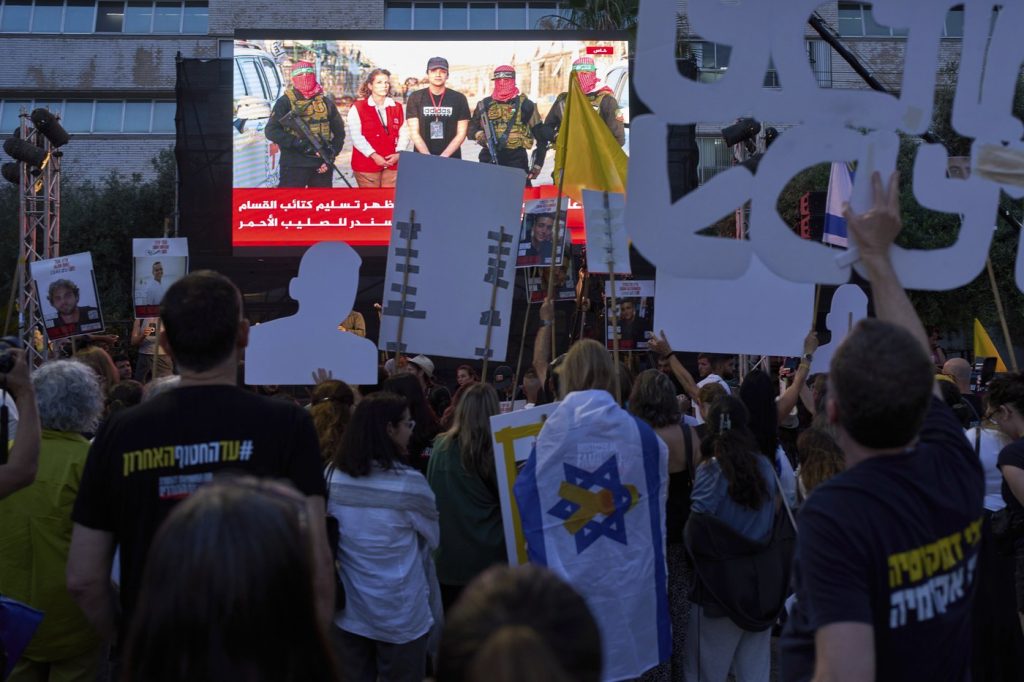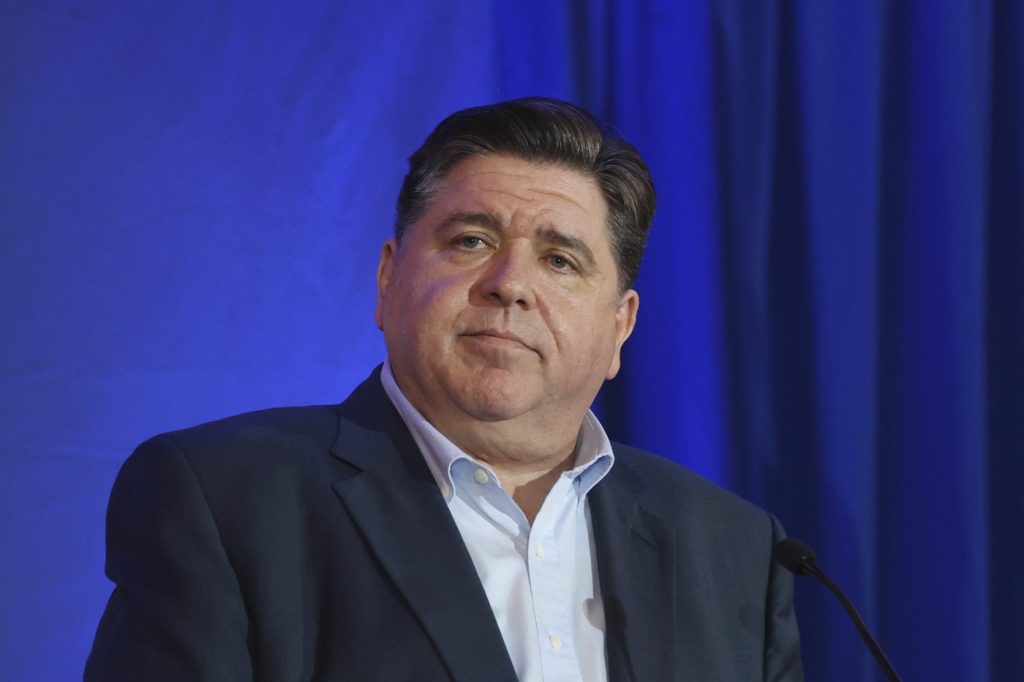DEIR AL-BALAH, Gaza Strip (AP) – Hamas has released an Israeli-American soldier, Edan Alexander, after over 19 months of captivity in Gaza, marking a significant gesture amid ongoing tensions. This release occurs just as U.S. President Donald Trump prepares for his first official foreign trip of his second term, which is aimed at addressing the ongoing conflict and facilitating peace talks in the region. Alexander, 21, was taken hostage during Hamas' cross-border attack on October 7, 2023, which ignited the current war with Israel.
Alexander's release was celebrated in Israel, where he was handed over to the Red Cross and subsequently to Israeli forces, followed by a medical transfer to a hospital in Tel Aviv. Emotional scenes unfolded as his family, particularly his mother and grandmother, received him with joy. The grandmother noted that he appeared to have matured during his time in captivity, making light of the situation with a joke when he first spoke to his mother.
The backdrop to this release involves ongoing conflict between Israel and Hamas. Following an eight-week ceasefire that Israel shattered in March 2025, the situation in Gaza has escalated, resulting in severe humanitarian crises and widespread casualties. Israeli authorities assert that ongoing intensive military operations aim to secure the release of the remaining hostages—including at least 58 who are still reported to be held captive, with around 23 believed to be alive. As the situation remains tense, supporters in Alexander's hometown of Tenafly, New Jersey, gathered to celebrate the news of his release while also calling for the return of all hostages.
President Trump reacted to Alexander's release positively, describing it as a hopeful step towards ending the brutal conflict. He emphasized the role of mediators, namely Qatar and Egypt, in these efforts. In light of this development, Israeli Prime Minister Benjamin Netanyahu met with U.S. officials to discuss negotiating strategies, explicitly stating that future negotiations with Hamas would occur under continued military pressure. He credited the combined military and diplomatic strategy for Alexander’s release.
Despite this gesture, Israel declared its intention to ramp up military offensives in Gaza. Netanyahu's office insisted that no concessions were made for Alexander's release, highlighting that a "safe corridor" was established only for his transfer. While the release of Alexander was a welcomed event, it also opened Netanyahu to criticism regarding his handling of the hostage situation. Detractors have suggested that he has relied too heavily on foreign leaders to negotiate for his countrymen's safety, implying a failure on his part to ensure their immediate release.
In a statement, a forum representing families of the remaining hostages urged Netanyahu to negotiate for all citizens' freedom, seizing what they termed a "historic opportunity." As the conflict continues, with escalating military actions following Alexander's release, the humanitarian situation in Gaza remains dire. Israel's continued offensive has raised concerns over significant civilian casualties and displacement, with reports indicating that over 52,800 Palestinians have died since the onset of the conflict, prompting international scrutiny.
With diplomatic channels opening up, there is cautious optimism regarding potential future negotiations. However, the broader conflict remains unresolved, and the call for peace continues to echo alongside the heart-wrenching narratives of those still held captive.












